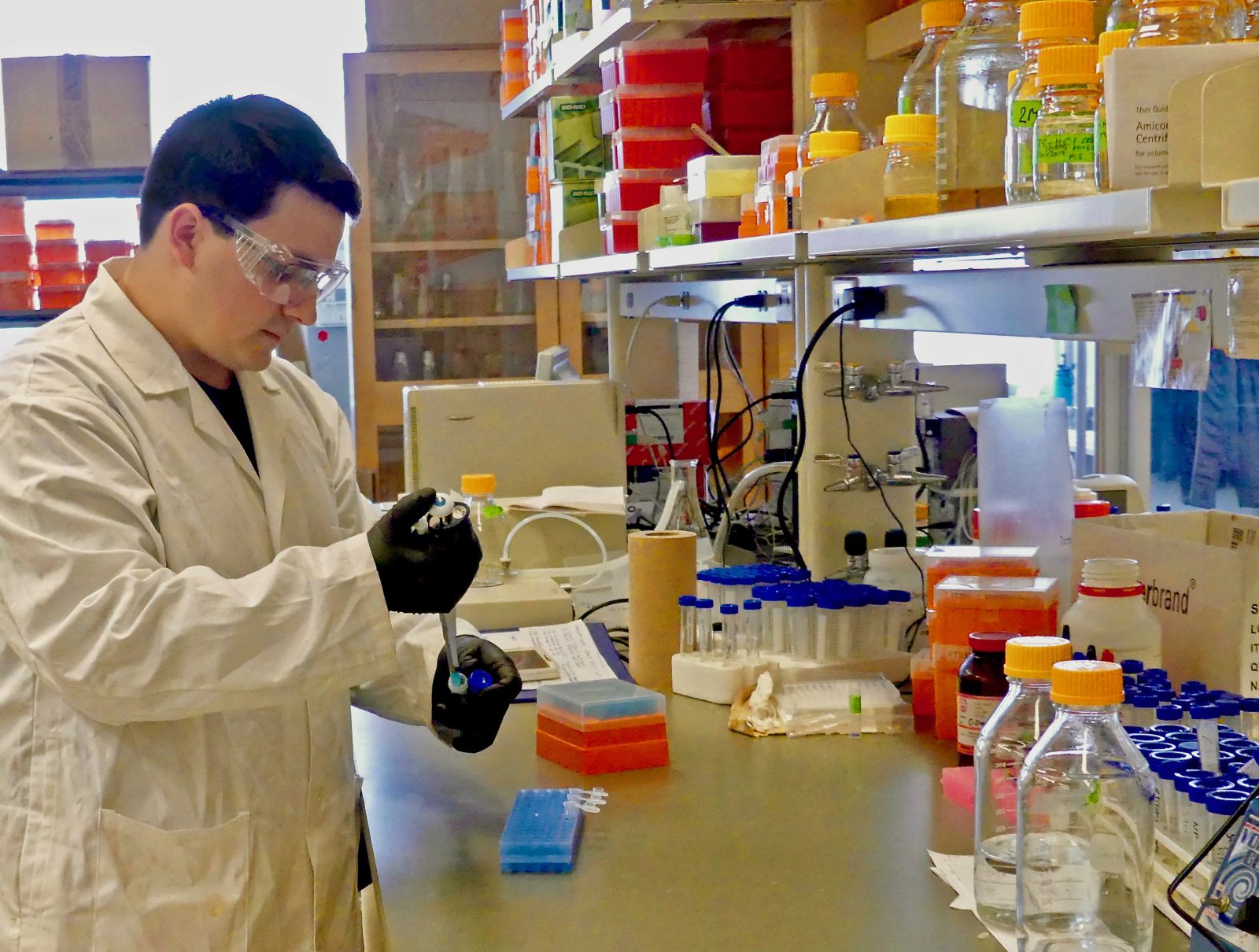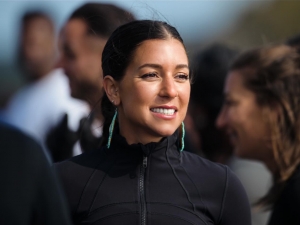 Charles Barraco, who is completing his PhD at Brock in Gene Biotechnology, has taken his research abroad to Université de Technologie de Compiègne in Compiègne, France.
Charles Barraco, who is completing his PhD at Brock in Gene Biotechnology, has taken his research abroad to Université de Technologie de Compiègne in Compiègne, France.Charles Barraco plans to bottle up the knowledge he acquires while abroad to bring back to Brock University’s laboratories.
The PhD student in Gene Biotechnology recently began a three-month learning experience at the Université de Technologie de Compiègne in Compiègne, France, with researcher Stéphane Octave.
After spending this past academic year successfully working with Biological Sciences Professor Charles Després, Barraco noted some areas of specialization that were important to his research, but not yet available in Brock’s labs.
This led the Kingsville, Ont., native on a global search that ultimately landed him in Octave’s lab, where he will learn new methods to apply to his plant-based research.
Barraco’s opportunity to conduct research overseas was made possible through funding from the Mathematics of Information Technology and Complex Systems (Mitacs) Globalink Research Award.
The grant provides senior undergraduate and graduate students in Canada, as well as postdoctoral fellows, with up to $6,000 to conduct 12 to 24 week research projects at universities overseas.
“The program allowed me to go collaborate with a lab (in France) by helping subsidize travel, housing and living costs,” Barraco said.
His goal is to “master new-to-us techniques and bring them back to Brock University.”
“The opportunity provided by the Mitacs’ grant allows our lab to develop new skills we did not previously have access to,” he said.
Barraco will be developing DNA and protein sequences that are capable of binding a plant protein of interest to stop its function. Specifics of the work, including the plant protein in question and its function, are being kept confidential throughout the process.
“What I can say is that our work would aid agriculture by providing another non-GMO (genetically modified organism) breeding program that works much faster,” Barraco said.
“By stopping the protein from working in the plant, we can increase different resistances within the plant’s offspring. We have shown this through a mutant plant already, and now we want to make an aptamer to control when we stop the protein’s function and, more specifically, when we reactivate the protein.
“Since we are not directly engineering plants through this method and we are getting different desirable properties in the offspring, we have potentially made an expedited non-GMO breeding program with the same complexity as just watering your plants.”
The Mitacs program supports opportunities at universities in Australia, Brazil, China, European Union member countries, Israel, India, Japan, Korea, Mexico, Norway, Tunisia, United Kingdom and the United States.
Students interested in applying are encouraged to connect with Brock faculty, particularly professors who are already supervising students on research projects. Faculty can then connect colleagues with one of Brock’s international partner institutions that would be a good fit for the student and the research project.
Applications are accepted any time, awarded competitively and subject to available funding. For participants wanting to travel by a certain date, Mitacs recommends applying at least 16 weeks in advance of a planned start date.
For more information about the grant, please contact Brock’s International Mobility Office at intlmobility@brocku.ca.









